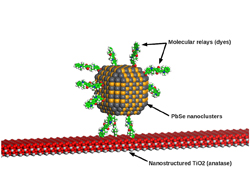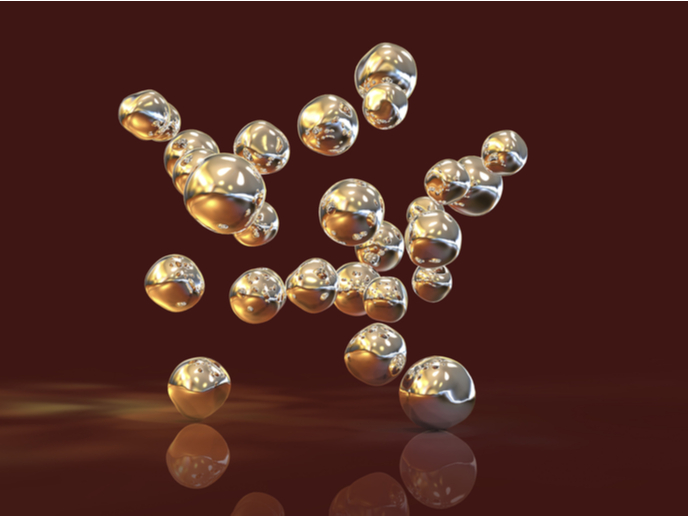Advanced solar cells with lower cost, longer lifetimes
There are now many different types of SCs (solar energy-conversion devices) at various stages of development and commercialisation. One way of classifying them is based on their photoconversion mechanism that differs in inorganic (conventional) versus organic (excitonic) SCs. Excitonic SCs (XSCs) enable charge generation and separation simultaneously and include the most advanced dye-sensitised SCs (DSSCs). The conversion efficiency of DSSCs is currently low (around 11 %), limited largely by the electrolyte and dye materials used. Overcoming these obstacles was the impetus for the EU-funded project 'Innovative materials for future generation excitonic solar cells' INNOVASOL(opens in new window). Scientists set out to replace the liquid electrolyte material with solid-state hole conductors (a different type of charge-carrying medium), and substitute semiconductor quantum dots (QDs) — tiny nanocrystals that absorb light — for the organic dyes. In addition, researchers investigated two other types of associated or support materials, molecules acting as molecular relays (MRs) connecting the QDs to electron conductor materials and novel semiconductor materials to maximise charge transfer and electron transport. With careful screening and selection of materials as well as innovative design concepts, INNOVASOL successfully produced XSCs with the target efficiency of 15 % having simultaneously lowered production costs and significantly enhanced device lifetime. The innovative solar harvesting approach is particularly well suited to the automotive sector with improved power management for battery charging, enhanced battery lifetime and decreased costs. It also supports the use of miniature solar modules to power convenience car lighting. INNOVASOL has provided a step change in the state of the art of XSCs and the commercialisation of technology stands to benefit small businesses, consumers and the environment.







